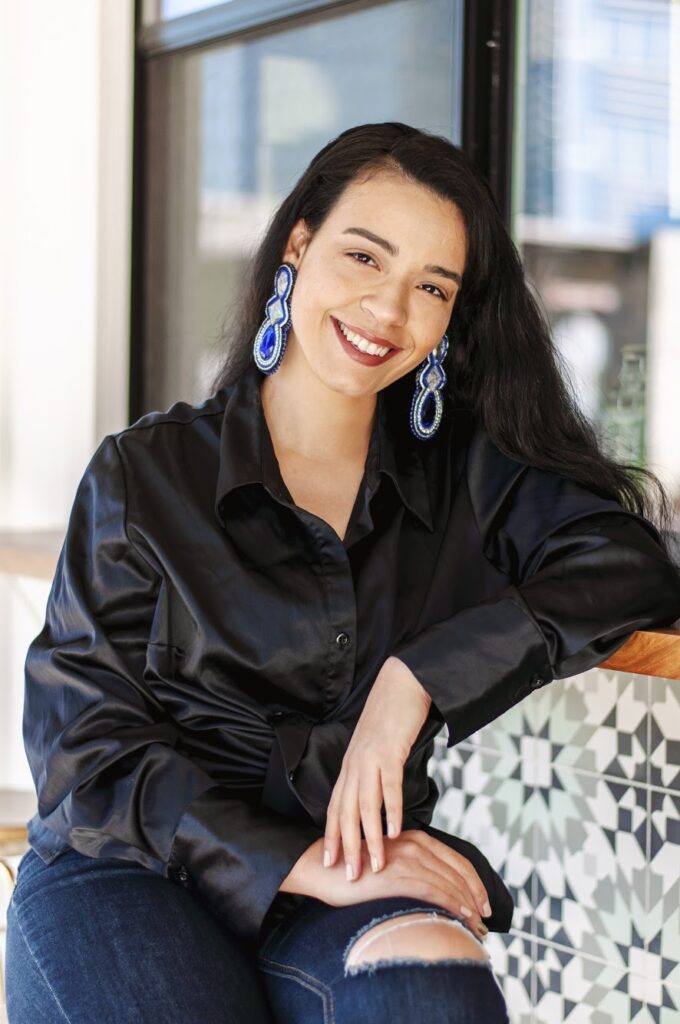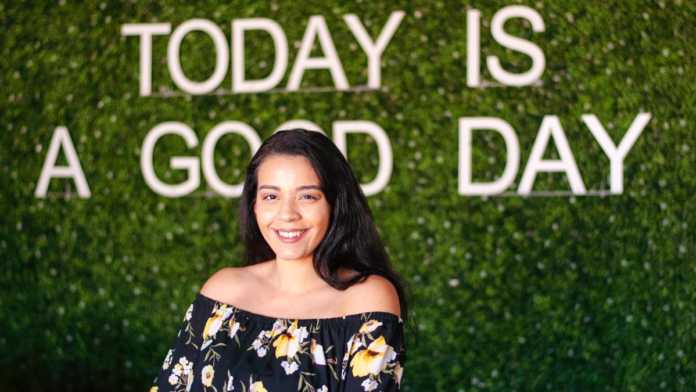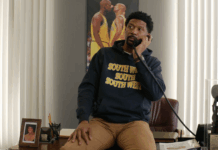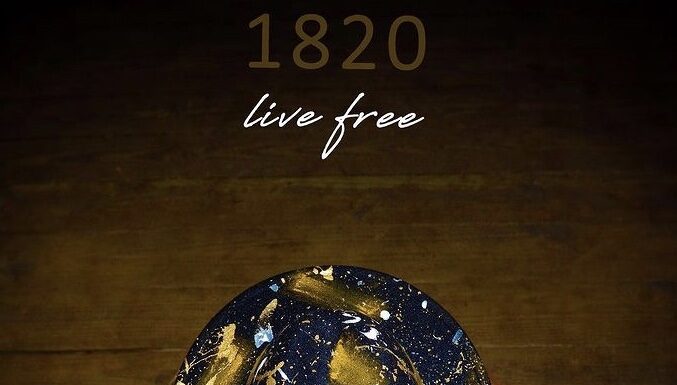( ENSPIRE She Did That ) Buy “Seeds: Stories of Afro-Indigenous Resilience” Poetry Collection
ENSPIRE Contributor: Gabrielle Maya
An inspirational speaker, advocate, and Afro-Indigenous storyteller, Dominique Daye Hunter specializes in poetry and sustainable fashion. She is the CEO of D.Daye Hunter Designs LLC, which showcases her artistry and the connections between historical trauma safe spaces and healing in Black/Indigenous communities. With a Bachelor’s degree in Nonprofit Leadership Management with an emphasis in American Indian Studies, Hunter is a leader who uses storytelling to heal.
In addition to advocating for Black and Indigenous awareness, she leads workshops on healing, stress management, empowerment, and DEIB training. She currently lives between Durham, NC, and Phoenix, AZ. One of her most significant accomplishments is her book release, “Seeds: Stories of Afro-Indigenous Resilience,” a collection of poetry and short stories that explores her reclaiming her traditional Yésah Saponi culture and West African roots.

Hunter shares her creation of D. Daye Hunter Designs and her creative journey into sustainable fashion and writing. She discusses her advocacy for Black and Indigenous communities and her writing collection, “Seeds.” Hunt dives deep into her Black Tea and Honey Podcast, her DEIB training and empowering workshops, and more.
How did the creation of D. Daye Hunter Designs begin?
My professional journey into spoken word and performance poetry started in 2013, igniting a passion that would shape my future work. By 2015, I had planted the seed for D. Daye Hunter Designs, driven by my deep love for design and storytelling. My initial focus on streetwear and poetry was fueled by a desire to explore the profound connections between history, trauma, and healing within Black and Indigenous communities. My designs aimed to honor my ancestors’ untold stories and illuminate their legacies for future generations.
In 2018, I embraced full-time entrepreneurship because of chronic illnesses, mostly stemming from intergenerational trauma. This pivotal shift allowed me to expand my business beyond clothing, incorporating workshops, consulting, and sustainable fashion. My developing business model now includes program management consulting for nonprofits, workshop facilitation, DEIB training, inspirational keynotes, custom poetry, and eco-conscious couture design.
I remain steadfast in my commitment to creating safe spaces for healing and empowering communities to speak their truths. My work is deeply rooted in values of empathy, environmental stewardship, and dedication to future generations. I plan to relaunch the clothing line aspect of D. Daye Hunter Designs in late 2025, with a renewed emphasis on sustainability and environmental consciousness. My aphorism, “Shining my light and not afraid of the dark,” reflects my profound healing journey and my ability to transform my experiences into a powerful source of strength and support for others.
When did you start your creative journey into sustainable fashion and writing?
My creative journey began in 2005, at the age of 13, when I first turned to poetry as a means of coping with the impacts of alcoholism and domestic violence in my family. These early experiences with trauma led to depression, anxiety, and suicidal thoughts. Writing poetry became a vital outlet for me, allowing me to reclaim my voice and escape the difficulties of my circumstances. By my late teens, I had typed hundreds of poems into my old desktop computer, using writing to process and transcend my experiences.
As I grew older, my creative expression expanded into fashion. I began crafting unique outfits, blending retro influences with alternative styles and elements of Black and Indigenous cultures. At 17, I launched my first business, Hunter Vintage, where I created tie-dye T-shirts adorned with spray-painted designs using poster board and X-Acto knife stencils. This early, bare-bones, homegrown exploration into fashion was more than just a hobby; it laid the groundwork for my future work in sustainable fashion, shaping my approach to design and creativity.
Tell us about your background and how you advocate for Black and Indigenous communities.
As the CEO of D. Daye Hunter Designs, LLC, I use my platform to create spaces that encourage authenticity, healing, and empowerment. My graphic design and retail business aims to empower BIPOC communities, promote diversity, and advocate for pressing issues affecting our communities. This mission naturally extends to my advocacy work, where I strive to uplift and support Black and Indigenous communities in meaningful ways.
I hold a Bachelor of Science degree in Nonprofit Leadership Management with a specialization in American Indian Studies, which equips me with a deep political understanding of the complexities and needs of these communities. This background forms the foundation for my extensive involvement in various initiatives. From 2016 to 2018, I was the founder and Executive Director of Indigenous Women In Solidarity Empowered & Rising. In this role, I cultivated relationships among 11 Indigenous communities and created proactive programming to address violence against Indigenous and Afro-Indigenous women.
As the program manager of Indigenous East, I work to protect Indigenous Cultural Landscapes and other critical lands along the East Coast of the United States. Our mission includes creating a network of Indigenous community leaders and protected areas, demonstrating the value of Indigenous Science (IS) and Traditional Ecological Knowledge (TEK), and advancing Indigenous and Afro-Indigenous scientists in conservation and governmental organizations. Indigenous East operates under the Landberry Foundation, which supports African-American and Indigenous families in maintaining and sustaining their inherited and ancestral lands. In 2022, I helped secure land back for the Hozho Voices of Healing Center and provided grant writing and branding to support land rematriation initiatives like these.
I have coordinated and participated in various impactful community events, such as BIPOC art galleries and exhibitions, open mics, and community forums. One example of the latter is my event coordination for the Great Dismal Swamp Stakeholder Collaborative’s biannual meetings, where African American and Native American representatives, along with other local nonprofit and government agencies (including the National Park Service), come together to protect and preserve the historic and natural resource that is the Great Dismal Swamp.
My commitment to advocacy is reflected in my involvement with the Yesáh Language and Sacred Places Project, which focuses on revitalizing endangered languages and preserving sacred sites, to which I am deeply committed. This initiative is crucial for strengthening cultural heritage and ensuring the continuity of traditional knowledge. My engagement with 7 Directions of Service also allows me to contribute to systemic change and support Black and Indigenous communities through initiatives advocating for healthy communities and combating systemic and environmental racism. Values of empathy, ecological stewardship, and consideration for future generations guide my work, ensuring my efforts address both immediate needs and long-term goals for the communities I serve.
When did you begin writing your collection for “Seeds?” What are some writing strategies you use to share your storytelling?
Seeds began as a 16-page handmade booklet printed on cardboard paper in 2015. I aimed to get my words into people’s hands and share my voice. This effort evolved into a 32-page booklet printed at FedEx in November 2018, marking a pivotal moment in my journey with its modest release of 100 copies.
By early 2021, while working on my second book in Arizona, I felt Seeds still had more to offer. A visit to North Carolina that summer and a deeper dive into our history revealed that additional voices and stories needed to be included. Over the next year, I expanded the collection to feature more family narratives, stories of Afro-Indigenous historical figures, and personal reflections on my journey.
The final version of Seeds: Stories of Afro-Indigenous Resilience, a 148-page book published by D. Daye Hunter Designs LLC in July 2022, represented a significant milestone and my official debut in writing and publishing a poetry book. I fully illustrated, designed, formatted, and published it, with editing by Kelley “Butterfly” Smith, a distinguished Black woman in writing, theater, and film. Since its release, the book has reached audiences in seven countries.
In my writing, I use vivid imagery and weave historical and cultural narratives to create a solid emotional connection with readers. My creative process includes spending extended periods alone, walking, and reading to spark inspiration before writing. These practices, combined with my background in spoken word and performance poetry, help me craft stories that resonate deeply with my audience.

What is the Black Tea and Honey Podcast about, and what topics are discussed that your audience can learn from and look forward to?
The Black Tea and Honey Podcast, hosted by me, Dominique Daye Hunter, is a vibrant platform where my bittersweet and spicy confessions as an Afro-Indigenous woman come to life. Each episode weaves my personal storytelling, evocative poetry, and cultural commentary, creating a rich and engaging experience for listeners.
You can look forward to me reading from my collection Seeds, featuring poignant poems like “Just Like You Sis,” which vividly bring interpersonal relationships and experiences to the forefront. The podcast also offers astrological forecasts for insightful guidance and my reflections on current events, providing a fresh and personal perspective. A podcast highlight is the “Auntie Advice” segment, where I channel the wisdom of the archetypal Auntie, offering helpful tips and sage counsel. I explore self-compassion and emotional nurturing themes and discuss balancing rest and resistance in response to seasonal and global shifts.
In Season 2, I am delving deeper into creating safe spaces in a challenging world, the importance of releasing draining influences, and sharing insights inspired by my ancestors and personal experiences. Additionally, the podcast highlights and supports Black and Indigenous-owned businesses, reinforcing my commitment to community empowerment.
What are some workshops on DEIB training, empowerment, and stress management? What strategies are used there that can help individuals?
My workshops blend DEIB training, empowerment, and stress management to foster personal growth and community engagement. For instance, “Land as a Relative” delves into the profound connection between land and identity, underscoring the importance of cultural respect and environmental stewardship. Meanwhile, “Intersectionality” explores how intersecting aspects of identity shape our experiences and opportunities.
In “Healing Through Storytelling,” I guide participants to share and reflect on their narratives, facilitating individual and collective healing. “Amplifying Your Voice” is designed to help individuals confidently express themselves and advocate effectively, while “Breaking Self-Sabotage” focuses on identifying and overcoming self-limiting beliefs and behaviors.
My DEIB training offers a comprehensive understanding of diversity, equity, inclusion, and belonging, equipping participants with practical strategies to create more inclusive environments. Additionally, I address stress management through mindfulness and self-care techniques. In “Poetry 101,” I introduce the art of poetry as a tool for personal exploration and expression.
I employ a range of strategies to support these workshops. Mindfulness practices enhance self-awareness and emotional resilience while increasing awareness of privilege fosters empathy and informed advocacy. I emphasize Black and Indigenous cultural competency to promote respect and inclusivity. Effective communication skills are developed to improve dialogue and advocacy, and self-reflection encourages participants to examine their biases and areas for growth. These approaches contribute to personal development and the creation of more equitable spaces.
Any future projects that focus on Indigenous advocacy, your writing, and spreading healing through storytelling you’d like to share?
I’m thrilled about several upcoming projects emphasizing Afro-Indigenous advocacy, storytelling, and writing. This summer, I’m working on a children’s book titled Hasí Čigoyo (Sweet Berries), which will be written entirely in Yesá:sahį with an English translation to aid in language learning and preserve our linguistic heritage.
Additionally, I’m excited to launch the pilot of The 13th D.E.N., a new initiative to create a safe and nurturing space for Black, Indigenous, Afro-Indigenous, and Yesáh writers, artists, and creatives. This project will foster culturally specific storytelling and provide a platform for often underrepresented voices.
In the fall, I’ll be deeply involved with the Yesáh Language and Sacred Places Project, coordinating the first installation of our community art and cultural monument. This initiative is vital for preserving our cultural heritage, impacting our community through representation, and reminding the world that we are still here.
Lastly, I’m excited to continue my involvement with the 2nd annual Indigenous Land Conservation Summit this fall. At the same time, during the Land Trust Alliance’s RALLY Conference, I will host Indigenous East’s second Land Rematriation Panel, where I’ll facilitate essential discussions on land conservation and restoration from Indigenous perspectives and advocate for enhanced Black and Indigenous land stewardship.
Follow Dominique Daye Hunter on Instagram for more information. To view details on her design content, visit https://www.ddayehunter.com/. Buy her book “Seeds: Stories of Afro-Indigenous Resilience.” Check out her Podcast “Black Tea and Honey” by streaming it on Spotify or wherever you get your podcasts.
Related Articles: Miiesha’s “Damaged”, Bring Indigenous People’s Stories To The Forefront, Indigenous Food Activist Sean Sherman Named to TIME’s List of 100 Most Influential People










